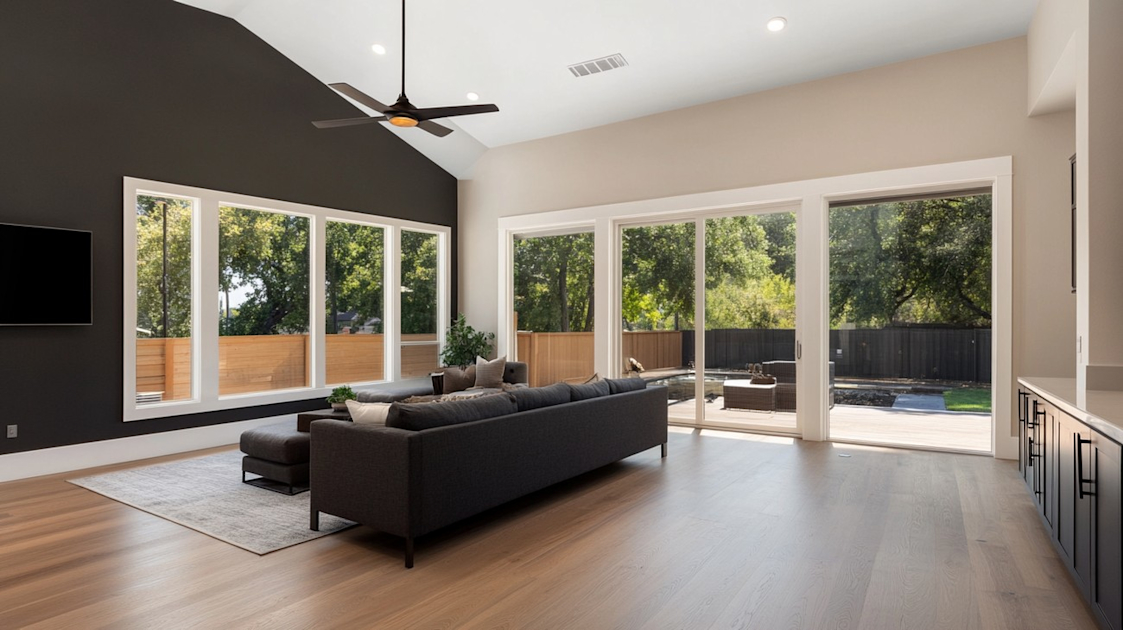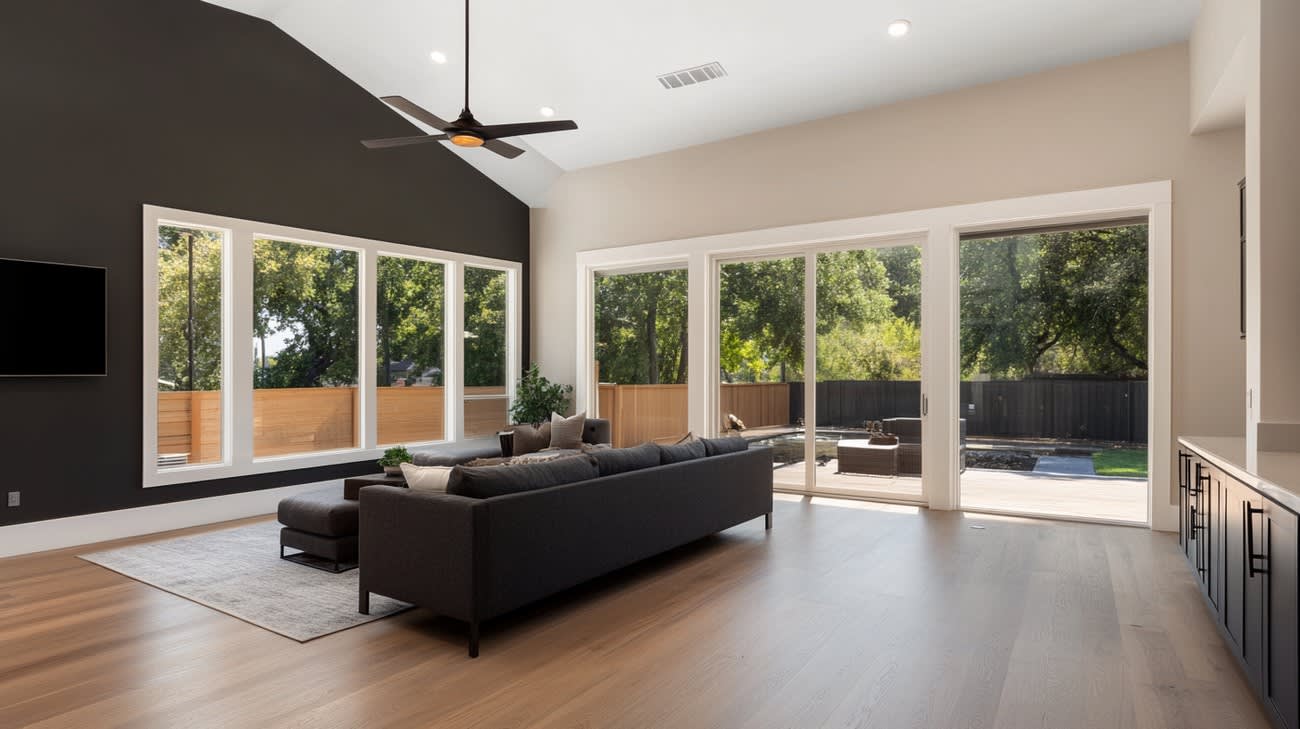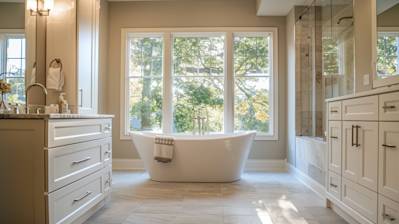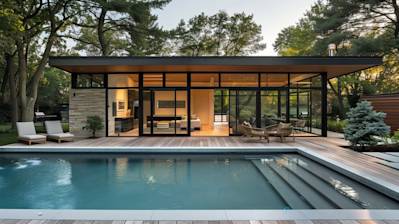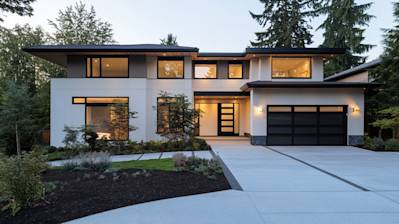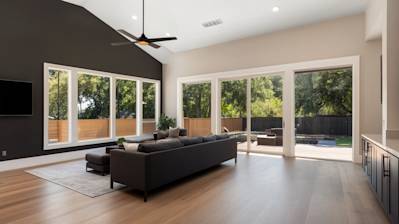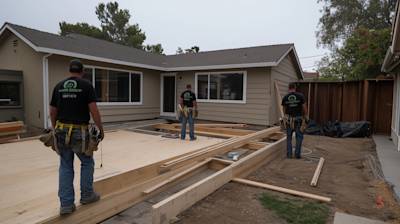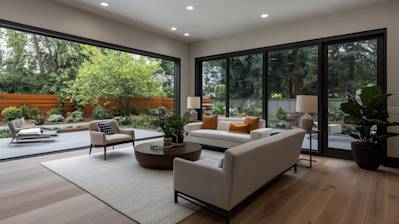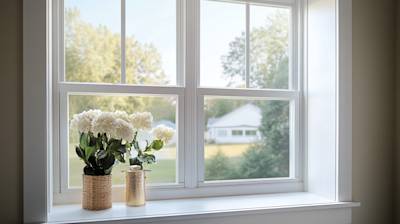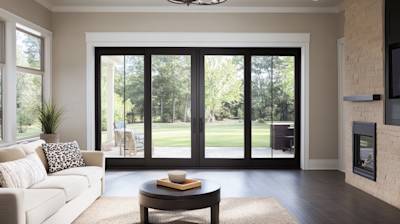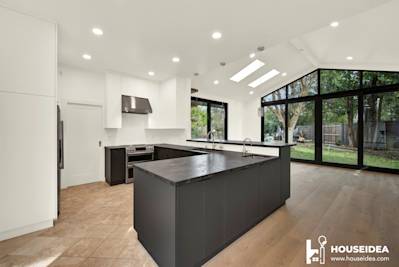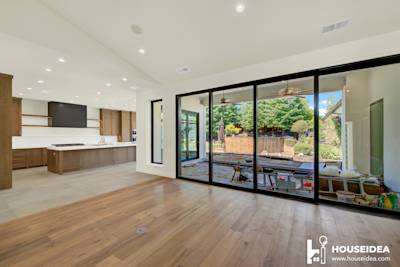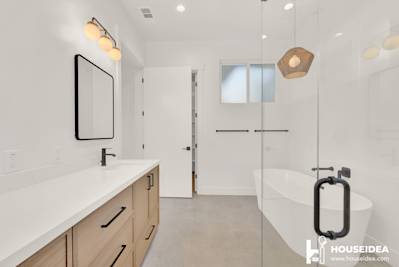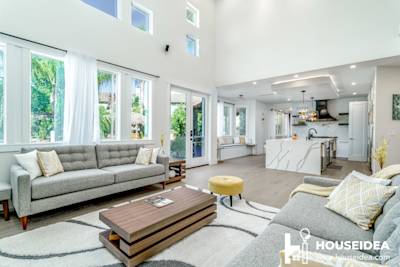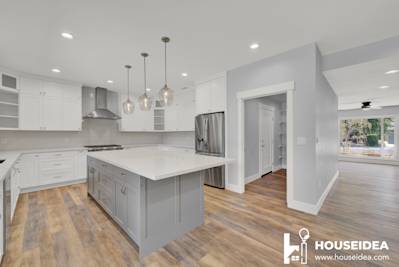When it comes to expanding your home sweet home, room addition is one of the most common methods homeowners resort to. Whether you've got a growing family or just in need of a home office or the cozy den that you've always wanted, adding a new room can make a massive difference. Constructing a new room is a major home improvement project that requires careful thought and planning. So, buckle up as we take you through this comprehensive guide to room additions.
Understanding Room Addition
Room addition is the process of enlarging the size of your home by constructing new spaces or rooms.
These additions can be:
- Single rooms
- Entire apartments attached to homes
- Additional floors to an existing house
Why Consider Room Addition?
Add Extra Space: One of the most obvious benefits of adding a room to your home is the extra space. If your family is growing, or you need an extra room for a home office or recreational space, a room addition is a way to go.
Increase Property Value: Room addition projects, if done correctly, will significantly increase your property's value, making it a valuable investment for the future.
Key Factors to Consider in Room Addition
Zoning Laws and Permits
Before embarking on your room addition project, acquaint yourself with the local building codes and regulations. This includes zoning laws, which often dictate what you can or can't do when it comes to home renovations and additions.
Budgeting and Planning
Construction costs can skyrocket if not properly monitored. Hence, before digging into construction, a well thought out budget plan is necessary. Get a rough estimate of how much the whole project will cost, and don't forget to plan for unexpected expenses.
Design
Consider factors like convenience, functionality, and harmony with existing structure when designing your room addition. Engage a professional architect or interior designer for expert advice.
Contractor
Hiring the right contractor significantly increases chances of a smooth construction process. Consider their experience, reputation, licensing, and bonding.
The Step-by-Step Guide to Room Addition
Planning
This involves defining the purpose of the addition, from an extra bedroom, home office, a recreational room, or even storage.
Design and Permits
You'll need to come up with a design that fits your vision, adheres to local building regulations, and is within your budget.
Foundation work
Depending on the type of room addition, you might need to lay a new foundation first.
Framing
Wooden structures that make up the room's skeleton will be built. This will provide a structure onto which the walls, roof and either floors or ceilings will be attached.
Installation
This step involves setting up the drywall, roof shingles, windows, and doors. Also, HVAC systems, electrical wiring, and plumbing will be installed.
Finishing
Lastly, the finishing touches that include painting, installing fixtures, and floor finishing are done.
Cost of Room Addition
The cost of adding a new room largely depends on several variables like the size and style of the room, location, and materials. On average, room addition costs range from $80 to $200 per square foot.
Designing Your Room Addition
Consider the following must-haves for your new room design:
- Adequate Lighting: Adequate lighting—both natural and artificial—is vital to make the room comfortable and functional.
- Heating and Cooling: Depending on your geographical location, an HVAC system will likely be necessary to keep the room comfortable.
- Storage: Establish whether your room design provides enough storage space.
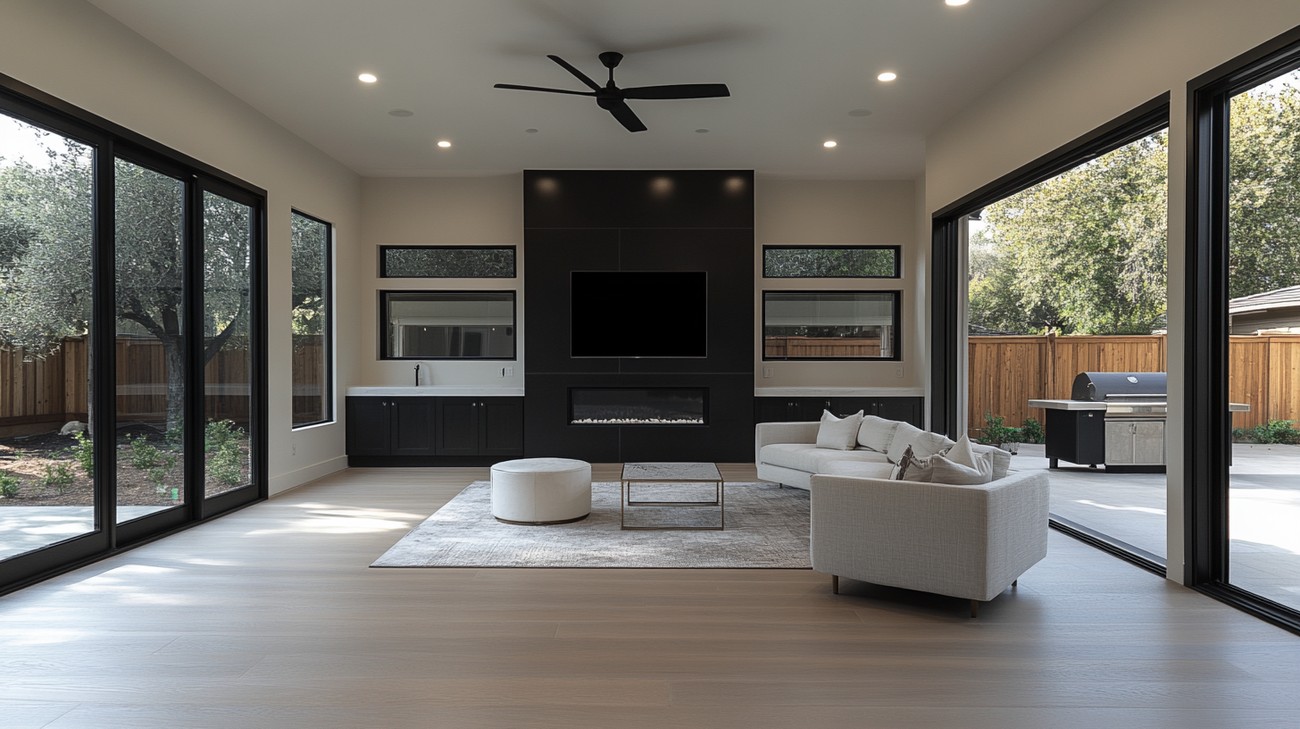
Frequently Asked Questions about Room Addition
Does a Room Addition Add Value to My Home?
Yes, room additions can increase the value of your home. However, the degree to which the value is increased varies significantly. It largely depends on the type of room added, the quality of work done, and the overall real estate market conditions. Generally, if the room addition enhances the functionality and aesthetic appeal of your house, it is likely to enhance its market value.
Do I Need a Permit for Room Addition?
Typically, you will need a building permit for your room addition. In many areas, it is illegal to initiate a room addition project without first obtaining the necessary permits. The requirements vary depending on your local city or county regulations. Remember that even if you think your project is minor, it's always best to consult with your local government building department to avoid any issues down the line.
Can I Do a Room Addition by Myself?
Technically, yes, you can undertake a room addition project yourself. But from a practical perspective, unless you have considerable experience in construction, it's generally advisable to hire a professional. Room addition involves intricate and complex tasks such as framing, electrical work, plumbing and a host of others. If not done properly, mistakes can be costly. So, it might be better and safer to rely on experts.
What is the Usual Timeline for a Room Addition Project?
The timeline for a room addition project can vary greatly depending on the size and complexity of the project. On average, however, a room addition project can take anywhere between several weeks to several months. Also, note that the timeline might be influenced by factors like permit acquisition, weather conditions, unexpected challenges, among others.
How Much Should I Budget for a Room Addition?
Similar to the project timeline, the cost of a room addition can vary widely based on the size and complexity of the addition, as well as regional cost differences. On average, though, you should expect to spend anywhere from a few thousand to several tens of thousands of dollars.
Should I Hire an Architect for Room Addition?
Yes, having an architect on board for a room addition can be very beneficial. They will help design the space, prepare necessary drawings, and can provide guidance during the construction process. Room additions that blend seamlessly with the rest of the home typically involve an architect. However, for a simple, single-room addition, an experienced contractor might suffice.
How Do I Choose a Contractor for My Room Addition Project?
Choosing a contractor for your room addition project is a crucial decision. Look for contractors who are licensed, insured, and have a solid reputation. Ensure they have experience with room additions specifically. Ask for references, read online reviews, and check out their portfolio. Don't hesitate to request bids from several contractors to compare costs.

Pros of Room Addition
Versatility and Flexibility
A room addition allows homeowners to create a space that suits their specific needs. With room additions, homeowners can design the new space in any way they wish to ensure it caters to their needs. For instance, if a homeowner desires an extra bedroom, home office, gym, bathroom, or even a home theatre, a room addition is a feasible option.
Enhanced Home Value
Increased Home Value
Room additions can significantly improve the overall value of a home. Typically, the value of a house is determined by the number of rooms it has. Thus, adding a new room can escalate the market price of your home, making it a solid investment for if you decide to sell the house in the future.
Appealing Factor for Potential Buyers
A modern, well-built room increases your house's appeal to potential buyers. For example, an additional bedroom or bathroom could make your home more enticing to large families, while a home office could attract those who work from home. A tasteful room addition can give your house a unique selling proposition.
Increased Living Space
Adding a room to your house gives your family more growing space. This can be especially helpful if you're expecting an addition to your family or if you often have guests over and need an additional guest room. You can also use the room as a hobby space or a quiet place to work or study.
Cons of Room Addition
High Costs
Expensive Project
Adding a room to your house can be a costly project. The costs of a room addition can quickly escalate if you're not careful, especially if you encounter unexpected problems during the building process. These could include plumbing or electrical issues, foundation problems, or insufficient structural support.
Increased Property Taxes
An increase in your home's value due to room addition often means an increase in your property taxes. You should research property tax rates in your area before commencing the room addition project and factor these potential costs into your budget.
Time-Consuming
Construction time
Adding a room to your house isn't a quick process – it can take weeks or even months to complete. This time frame might be prolonged if unforeseen issues arise, or if you're working with unreliable contractors who don't stick to the project timeline.
Permit and Approval Process
Before the room addition project commences, you need to get approval and permits from your local authority. This process can be time-consuming, especially if revisions to the plans are needed or if there are delays in approving the permits.
An inconvenience and Discomfort
Noise and Dust
Room addition involves demolition, building, and finishing, all of which can create a great deal of noise and dust. This may be disruptive and uncomfortable, particularly if you are living in the house during the addition.
Privacy and Security Issues
You'll need to have workers in your home for an extended period during the construction. This can lead to privacy concerns as well as potential security risks. Thus, it's essential to work with a reputable, trustworthy construction company when adding a room to your house.
Potential Overbuilding
If you add a room that's too large or luxurious compared to other homes in your neighborhood, it may result in overbuilding. Overbuilding implies that your home's value is significantly higher than those around you, which might make selling your home more challenging in the future, as buyers may be hesitant to pay more for your house than for similar ones in the same area.
Zoning Restrictions
Depending on where you live, there may be zoning laws and building codes that restrict what you can do with your property. These may limit the size of your room addition or even dictate its placement on your property. It's crucial to understand these rules before you start your room addition project to avoid expensive and time-consuming setbacks.

Myths and Misconceptions about Room Addition
Adding a room to your house is a significant project that can significantly enhance your home's value and personal quality of life. Unfortunately, room addition is often surrounded by numerous misconceptions that can complicate the process or discourage homeowners from pursuing this improvement. Below, we debunk these myths and provide clarity for homeowners planning a room addition.
Myth 1: Room Additions Always Increase Home Value
One common myth is that adding a room will always increase your home's resale value. While it's true that space generally adds to a property's value, it's not a universal rule. Remember, an addition's value will largely depend on:
Location
The value of an extra room depends on where your home is. The added value in an affluent neighborhood with high property values might be significantly different compared to a less affluent one.
Quality of Construction
Subpar construction or design could make the new addition less appealing to potential buyers. A professionally crafted room addition will likely add more value compared to a DIY one.
Type of Room Addition
Not all room additions were created equal. Bedrooms and bathrooms typically add more value than additions such as a sunroom.
Myth 2: Room Additions are Expensive
Another prevalent misconception is that room additions are prohibitively costly. While a room addition usually is a significant financial undertaking, the total cost can vary dramatically depending on several factors.
Materials
The kind of materials you choose for the room addition will significantly influence the project's overall cost. Higher-end materials will push up the budget while budget-friendly options can help keep costs under control.
Complexity of Design
A simple, square room will be less expensive to build than one with a complex floor plan, features or layout.
Existing Infrastructure
If your home's existing infrastructure — such as the electrical, plumbing, or HVAC system — needs major adjustments to accommodate the addition, your costs can increase.
Myth 3: DIY Room Addition is an Easy Way to Save Money
Thanks to numerous TV shows and YouTube tutorials, many homeowners believe that they can take on a room addition themselves and save money in the process. While DIY projects can sometimes reduce labor costs, they can also lead to expensive mistakes, especially for complex tasks like a room addition. Unless you have professional construction experience, attempting a DIY room addition might end up costing more due to errors or mishaps. Also, professional builders often have access to lower-cost materials, offsetting some of the savings from DIY labor.
Myth 4: All Contractors are the Same
Not all construction contractors are the same. It is essential to be diligent when hiring one for a room addition. Research local contractors, ask for references, verify their licenses and insurance, and compare estimates. You may find that a slightly more expensive contractor who specializes in room additions can achieve better results or help prevent unexpected costs.
Myth 5: The Permit Process is a Waste of Time
Some homeowners erroneously believe that obtaining a permit for a room addition is unnecessary or that it's something they can bypass. But skipping the permit process might lead to serious consequences, such as fines or problems when you try to sell your house. It's worth noting that permits ensure the addition follows local building codes, which are there for your safety.
Myth 6: Room Addition Takes Forever
Many homeowners believe that adding a room to their home will be a never-ending project. While it's true that room additions entail considerable work, including design, approval, and construction steps, an experienced contractor can handle most room addition projects within a few months. Timelines can depend on the size and complexity of the project, the thoroughness of the planning stage, and unforeseen challenges like bad weather.
By understanding the truth behind these myths and misconceptions, homeowners can make more informed decisions about room addition projects. Remember, professional advice should always be sought for such substantial projects.
Summary
All in all, a room addition project can spruce up your living space, add much-needed square footage, and increase the overall value of your property. As such, it's clear that there are several enticing benefits that can come along with this kind of home improvement venture. What's critical though is to plan out your room addition carefully, keep an eye on the budget, and ensure you've got experienced professionals in order to ensure the project runs smoothly.
Having a well-thought-out room addition plan can significantly improve the functionality and aesthetics of your home. Whether it’s an extra bedroom for guests, a playroom for the kids, or a home office, a room addition can provide the extra space you need to accommodate your lifestyle changes. It's pretty much like saying "Hello" to a new and improved house without having to leave the comforts of your old one.
At the end of the day, a room addition creates an opportunity for you to redesign your house to better fit your current needs and lifestyle. This kind of project should be viewed as an investment, not just an expense. That’s because, with a successful room addition, you stand to enjoy more room to flourish and a potential increase in your property's market value. The sky is truly the limit when it comes to what you could do with that extra space!
About HouseIdea
HouseIdea, Located in Sacramento, CA, is a locally founded company dedicated to creating homes that are warm, inviting, and uniquely tailored to each client. Our team comprises passionate professionals with a deep appreciation for all aspects of home design, from intricate décor details to large-scale architectural transformations. Combining creativity, expertise, and years of experience, we specialize in transforming houses into spaces that authentically represent our clients’ personalities and lifestyles. Whether you’re refreshing a single room or undertaking a complete home renovation, HouseIdea is here to bring your vision to life—no moving trucks required.
Tags: construction, home improvement, renovation,

